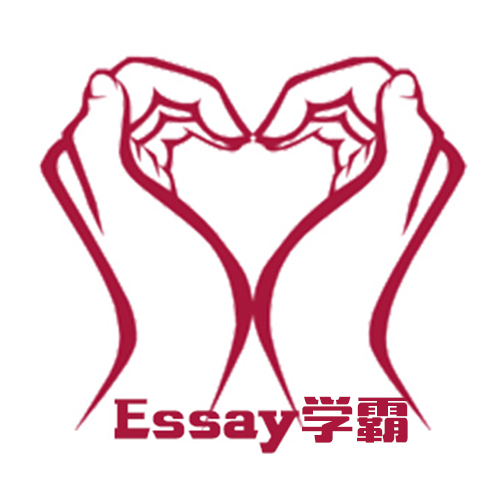服务承诺
 资金托管
资金托管
 原创保证
原创保证
 实力保障
实力保障
 24小时客服
24小时客服
 使命必达
使命必达
Essay学霸提供Essay,Paper,Report,Assignment等学科作业的代写与辅导,同时涵盖Personal Statement,转学申请等留学文书代写。
 Essay学霸将让你达成学业目标
Essay学霸将让你达成学业目标 Essay学霸将让你达成学业目标
Essay学霸将让你达成学业目标 Essay学霸将让你达成学业目标
Essay学霸将让你达成学业目标 Essay学霸将让你达成学业目标
Essay学霸将让你达成学业目标私人订制你的未来职场 世界名企,高端行业岗位等 在新的起点上实现更高水平的发展
 积累工作经验
积累工作经验 多元化文化交流
多元化文化交流 专业实操技能
专业实操技能 建立人际资源圈
建立人际资源圈传统中国的文化——孝
2023-09-03 来源: 类别: Report范文
From a family’s view, “bond” was an important word in China. Traditional Chinese were inclined to tighten their family bonds and fought against any attempt of splitting their families. Furthermore, Confucian interpreted the whole state as a family and every member should bond together when disputes and wars with other countries arose, which obviously met the ruling class’ need. So, to construct a harmonious society, the first step that the ruling class took was to promote ideologies that our country was a big family where we shared interests and losses, using Confucianism as a weapon.
Next, we have to understand what Xiao represented in Chinese dynasties. From a modern view, we may expect Xiao to be no more than kindly taking care of our parents. Yet, the definition of Xiao in a premodern China was more rigorous and demanding, and traditional Chinese rulers had broadened this concept into politics through all sorts of measures, which made it even more complex. That was, societies at that time promoted that one should never show any signs of noncompliance to the elder and always stay loyal to his emperor. In this way, dynasties, like Han, Ming and Qing, all harmonized the devotion within a family together with that within the state.
Such an characteristic was called the parallel conception of society, which was pervasive in Confucianism. The system of Confucianism covered almost every part of our daily life, from eating manners to moral requirements, from domestic education to diplomatic issues. It acted as a textbook when it came to proper manners of a gentleman and a powerful state.
Another important factor of Confucianism’s popularity occurred in the Later Han Dynasty, when a famous successor of Confucianism, Dong Zhongshu, equaled the imperial power to “the supreme ultimate”, which undoubtedly catered to the need of the emperor. Thus, ever since Han dynasty, the governments had endeavored to develop Confucianism. The reason why it overruled almost every period since Han was that it highly fulfilled the ruler’s need of establishing an easy-to-rule state.
When it came to the priority of filial issues, many people may put forward a question: what if the interest of one’s father conflicted with that of the Emperor. To answer this problem, we have to uncover the real aim of constructing a filial-obedience-dominated society. As we know from those collected history materials, the image of the ruling class was usually depicted as a noble man who sincerely listened to every word of his parents. That’s because such a glamorous figure would effectively convince his subjects to respect and support him. Secondly, Xiao and Ti were vital standards in acquiring a satisfying official career. If we compared the imperial examination to be a single-plank bridge, Xiao and Ti would mean to open up a brand new way to earn a career. If one devoted all his life to serve the elderly and managed to make his story well-known, he would save a lot of time preparing for those tedious examinations and get a direct ticket to serve his country. For these reasons, filial obedience became the mainstream.
Besides, the ruling class had utilized the concept of Xiao to foster absolute obedient minds. The emperors believed that a man who complied with his elders would be easier to govern, and then orders could be taken more effectively. To realize this assumption, the whole society was immersed in stories like the 24 stories of filial piety. These stories exaggeratedly elaborated how children should dedicate all their time, even their heirs and lives, to meet some unreasonable requirement of their parents. They were popular for its impressive plots and touching family bonds. Children grew up under this environment would never say no to any order of their elders, superiors and the Emperor.
In addition, death was a majestic event in Chinese society. It involved a series of a complicated funeral, mourning and periodical tomb-visitings. I think it was the time when conflict between devotion to families and dedication to the state appeared. Most bereaved officials may ask for a chance to quit and go back to their hometown to express their Xiao and love to the deceased by standing as guards at the bier and looking after funeral events. Unwilling to break an obedient circumstance, the Emperor usually temperately accepted his officer’s resignation and called him back shortly after the funeral came to an end. Then, the sheep-like officer had no choice but to take the offer to avoid cruel punishment, and his retirement ended as well. Acts like this though may arouse frustration to some extent, the rulers usually took out a considerable amount of gold and other rewards as a compensation for their loyalty and filial piety. Through a combination of forceful orders and gentle remedy, the Emperor kept his faithful subordinates without violating filial piety.
Except from Confucianism and funerals, dynasties like Ming Dynasty also emphasized women’s education. Books, such as Ban Zhao’s Admonitions for Women and Song Ruozhao’s Analects for Women made detailed explanation on female’s proper behaviors in an orthodox society. These works were widely read in every family who hoped their daughters to be regarded as virtuous and sensible woman. It hogtied women’s behavior from eating, serving husband and parents-in-law to ritual decorum, which could be called an encyclopedia of female manners. Perhaps due to its thorough elaboration, it locked women’s mind in a tiny frame without any space for free thoughts. I could sense how the orthodox ideologies rooted in traditional Chinese women’s minds when reading their poets and other works in premodern China.
In this way, the government “produced” wives and mothers of similar values and behaviors and thus indirectly took the development of each family within its domain in control.
In traditional China, each dynasty aimed to maintain a stable and prosperous social environment. Xiao issue, as a respectful quality, was especially stressed and became a powerful tool to establish a group of loyal and obedient officers by marking itself as a valuable standard in selecting officials. At the same time, the Emperors turned to Confucianism to prove its supreme status over anyone else in the world. Even if a useful subordinate resigned from his current post to carry out his responsibilities of filial piety when the Emperor could always use carrot and stick to ensure his advantage in conflicts like this. At the same time, a tiny but significant female power was raised up after continuous ethical nurture, which served to ensure a stable country by maintaining domestic peace first.
Essay学霸网站原创范文除特殊说明外一切图文著作权归Essay学霸所有;未经Essay学霸官方授权谢绝任何用途转载或刊发于媒体。如发生侵犯著作权现象,Essay学霸保留一切法律追诉权。












